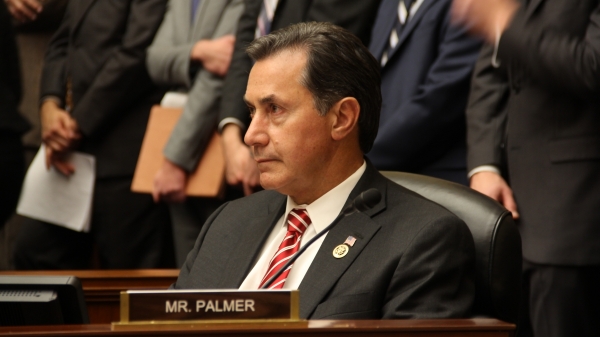By Brandon Moseley
Alabama Political Reporter
U.S. Senator Jeff Sessions (R) from Alabama released a written statement Tuesday after two of his food stamp reform amendments were rejected by the U.S. Senate. Sen. Sessions is the Ranking Republican Member of the Senate Budget Committee.
Sen. Sessions said, “It is disappointing that the Senate majority rejected modest attempts to reform the single largest growing major expense in the federal budget. Food stamp spending has quadrupled since 2001, and has doubled since 2008. The food stamp budget now makes up 80 percent of the farm bill and will remain at more than double pre-recession levels for the next ten years. It is one of nearly 80 overlapping federal welfare programs providing low-income support, including 17 for nutrition. An individual on food stamps may receive as much as $25,000 in low-income support for their household.”
Sen. Sessions amendments would have prevented states from waiving eligibility requirements to receive Food Stamps and would have eliminated bonus pay to states that for enrolling more people. The amendment would have ended the practice of paying states $500 million in bonuses for signing up as many people as they can find was defeated 58 to 41. Every Democrat and some Republicans voted against that amendment. The amendment to prevent states from waiving eligibility requirements was defeated 56 to 43. Sen. Claire McCaskill from Missouri was the only Democrat that voted for the amendment. Republicans Olympia Snowe, Susan Collins, Dean Heller and Scott Brown voted with the Democrats.
Sen. Sessions said, “It is stunning that the Democrat majority—at a time when we are borrowing forty cents of every dollar we spend—would object to providing even this small degree of financial accountability. It is, however, an encouraging sign of progress that this amendment, unlike last year, did receive bipartisan support and a larger vote total.”
Sen. Sessions concluded, “This is not only a financial issue but a moral issue. One in 7 Americans are on food stamps. Under this bill, no fewer than 1 in 9 Americans will be on food stamps at any point in the next ten years. Left unattended, the safety net can turn into a restraint. Welfare support can, over time, become damaging to both the Treasury and the recipient. Those administering the program seem determined to place the largest number of people possible on welfare support. Is not a better goal to see how many Americans we can help achieve financial independence?”
If the Sessions amendments had passed they would have saved $20 billion from the $770 billion that the government will spend on Food Stamps. 44.7 million Americans received food stamps in FY2011. The Food Stamp program has been renamed the Supplement Nutrition Assistance Program.
America’s national debt is $16.8 trillion and is growing at a rate of $4 billion a day. Runaway entitlement spending including Medicare, Medicaid, and Social Security is a large part of the problem.
Senator Sessions resides in Mobile.
To view more information about Sessions’ food stamp reforms:


















































